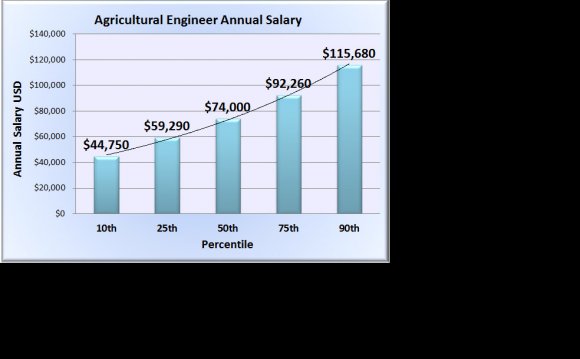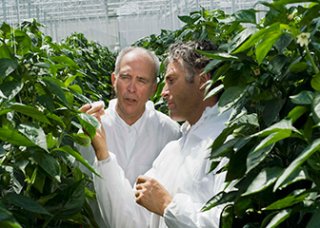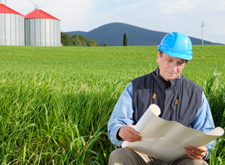
 Agricultural engineer essential career information:
Agricultural engineer essential career information:
- 2011 median pay: $74, 630
- 2010, number of jobs: 2, 700
- Employment growth forecast, 2010-2020: 9 percent
- Entry level education requirements: Bachelor’s degree
Agricultural engineers; what they do:
“Agricultural engineer” may sound like a fancy word for farmer, but these professionals handle a complicated array of responsibilities. Depending on their area of specialization, an agricultural engineer’s scope of expertise can focus on bioprocess technology, aquaculture, forestry, traditional farming, developing biofuels and conservation methods, planning animal environments or improving the way industry processes food.
Agriculture engineers tackle problems encompassing every aspect of farm operation: machinery, power, buildings, crops and animals. Some people who work in agricultural engineering develop new tools and methods for using them; design food processing plants; provide advice on water quality and pollution management and oversee land reclamation projects. An agricultural engineering career typically involves computer-aided design technology.
 An agricultural engineer career may involve testing agricultural equipment to ensure proper performance. Agriculture engineers work indoors and outdoors, visiting agricultural sites to ensure equipment functions according to manufacturers’ instructions and government regulations. Professionals in agriculture engineering also work in research and development laboratories.
An agricultural engineer career may involve testing agricultural equipment to ensure proper performance. Agriculture engineers work indoors and outdoors, visiting agricultural sites to ensure equipment functions according to manufacturers’ instructions and government regulations. Professionals in agriculture engineering also work in research and development laboratories.
Agricultural engineers job duties:
- Supervising manufacturing operations.
- Designing machinery using sophisticated computer software.
- Designing food-processing plants.
- Developing living environments that ensure animals’ comfort, health and productivity.
- Designing crop processing and storage buildings.
- Planning and managing installation of electric power-distribution systems.
- Communicating with all those involved in an agricultural project.
- Providing advice on pollution issues, controlling rivers and ways to protect and use other water resources.
Agricultural engineers job titles:
- Research agricultural engineer
- Project engineer
- Conservation engineer
- Agricultural safety and health program director
- Professor
- Agricultural systems specialist
- Research leader
Agricultural Engineers Education, Certification and License Requirements
Candidates for an agricultural engineer career typically need a bachelor’s degree in agricultural engineering or biological engineering. Agriculture engineers who offer services to the public must earn a license, which typically requires four years of experience as an agricultural engineer (which can include an internship), a degree from an accredited program and passing scores on the Fundamentals of Engineering and Professional Engineering exams.
Among agriculture engineers’ key skills are critical thinking, mathematics, problem-solving, listening and experience with common office software and computer-aided design software.











